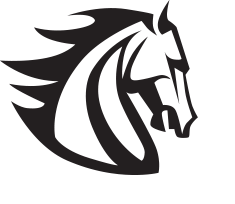*Disclaimer: the following is for example purposes only, I don’t think of people as livestock.
I began my sales career in Richmond, Virginia. I was a fast-talking Yankee from Pennsylvania who fell in love with the people, the style and the stories of the South. I learned as much as I could (during and after business hours) from a sage, avuncular (like an uncle), “old school” manager. I was a sponge eager and willing to absorb the lesson. He would speak in colloquial terms using metaphors for examples. He was as colorful in his story-telling as he was successful in his business pursuits. Some stories remain indelibly imprinted in the recesses my memory. I pull them from the dark when I need an instructive reminder or, in some cases, a dose of humor. One particular day, he relayed the following story to me in response to a question regarding hiring and positioning people to “play to their strengths”.
Inherent in the following example is the requirement to first learn of your strengths, your nature and your limits before you can export “potential to possibility” and cash result from activity. There are three types of horses in our example: a Thoroughbred (think Secretariat, Triple Crown), a quarter horse (think of the horses that cowboys ride in those Westerns on the big screen), and a plough horse (think Budweiser commercial).
The plough horse is harnessed to till the fields. Their purpose is to create the environment that will harvest the food source for all horses. The quarter horse is used by the owner of the ranch to inspect the property, including the fields. (Broken fences are mended and strays are rounded up.) The Thoroughbred has a different DNA; its nature is to run. The plough horse is not endowed by nature to have the ability of a quarter horse, and a quarter horse does not have the ability to run like a Thoroughbred. When people confuse a Thoroughbred for a quarter horse and a quarter horse for a Thoroughbred, they misuse and abuse the animal.
In a sales organization, management recruits for both Thoroughbreds and quarter horses. The Thoroughbred is the sales superstar – the natural that builds upon their gifts with the work ethic, willpower and people skills that differentiate them from the rest of the sales team. The quarter horse is an income generator that is dependable, consistent and productive.
I’ve hired many young sales people full of optimistic sizzle and oversized dreams who want to join the winner’s circle as a Thoroughbred – but Thoroughbreds are not subject to desire or want, their purpose is linked to nature.
Quarter horses can be valuable, but they are not the high performance animal that wins the big race. Page 12 in the Horse Owner’s Manual: “Each horse must be cared for in a manner that suits its style and purpose.”
Thoroughbreds, quarter horse or plough horse? This is a trick question – there are no plough horses in sales. So it comes down to two…
- Thoroughbreds can’t stand the idea of being in second place. Second place will drive them crazy, regardless of organizational size. They chafe at the bit, they snarl and spit – they cannot be #2. They will run until their lungs explode; running and winning the race is the sole purpose of their existence. (Of course, when they are done racing, Thoroughbred’s enjoy a pretty comfortable existence.)
- For a Thoroughbred, it really isn’t about the money, it’s about the win, it’s about the need to prove and the need to become. Everything else is secondary. There is no motivating secret sauce, no compelling fear that you can give someone who doesn’t already own it as part of their nature. The best trainers or sales managers may be able to alter behavior for the short-term, but, sooner or later, performance will revert to its natural state.
The answer to which horse do you want in the race is simple. You want the one who can win the race.

